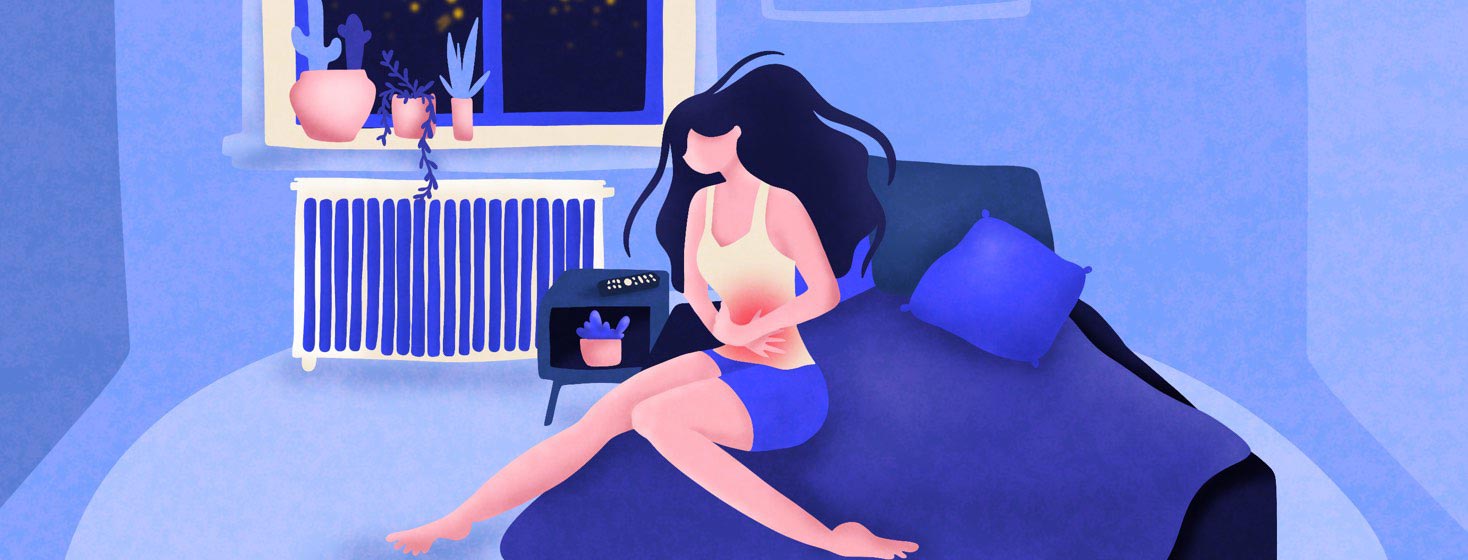IBS and Diverticular Disease
In 2013, after years of suffering from abdominal pain and diarrhea, and following extensive tests, my general practitioner diagnosed me with IBS. Since then I have mostly learned to manage this very painful condition by changing my diet and lifestyle.
As I am a half-cup full, kind of person, I received great comfort from knowing that at least my intestine was not damaged like with other digestive issues, such as inflammatory bowel disease (IBD).
This contentment lasted until recently when I experienced my very first diverticulitis attack, and a CT scan revealed that I was suffering from diverticular disease.
My first diverticulitis episode
The flare-up happened suddenly and caused me acute abdomen pains, together with nausea and fever. After a whole day, the pain was still strong and persistent, no matter what painkillers I took. Eventually, after great insistence from my concerned friends and family, I agreed to go to see my doctor. By pressing where it hurt, the doctor immediately realized there was something quite wrong and promptly sent me to the hospital.
At the hospital, after scanning my abdomen, the doctor informed me that my digestive tract had some small pouches, called diverticula, that had become infected and needed to be urgently treated with antibiotics. This is called diverticulitis, which is an inflammation and infection of one or more diverticula (bulges in the colon wall).
I ended up spending a few days at the hospital, being treated with powerful antibiotics and a clear liquid diet, followed by a "low-residue" diet for a few days, afterward.
Before leaving the hospital, the doctor gave me a leaflet with a list of high-fiber food. She recommended that I should start building up to consume more of these types of food and also suggested to promptly visit a dietitian.
Low FODMAP diet for diverticulosis
After my hospital stay, I had a follow-up with a recommended dietitian, and interestingly, she did not necessarily think that a high-fiber diet was still the best way to go. Instead, she suggested that recent research had found that the low FODMAP diet may not just help IBS sufferers but can also help prevent the recurrence of diverticulitis.1
I happily replied that I knew quite a bit about this diet and explained to her how much that helped me with my IBS symptoms. I also revealed that I hadn’t followed it as much in the last few months, as I thought I was getting better with my symptoms.
Since then, I got stricter again with my food and I am happy to say that I haven’t had a diverticulitis episode since then.
Differences between IBS and diverticular disease
IBS and diverticular disease (DD) share some of the features such as bloating, abdominal cramps, constipation, diarrhea, or alternating of the 2 (in the case of DD, diarrhea is a symptom that occurs less often). In both types, the symptoms can be exacerbated by stress, anxiety, depression, etc., but for DD sufferers, abnormalities of the gut are probably more important than cerebral factors.2
With DD, there is actual physical damage in the intestine. It presents as small, bulging pouches, called diverticula, that form in the wall of the digestive tract, usually in the colon section of the intestine. When the diverticula become swollen, inflamed, or infected, it can cause diverticulitis a more serious condition called diverticulitis.
Like many diverticulosis patients, I had no idea that I suffered from diverticulosis, as I had no symptoms before my flare-up.
Now that I have the knowledge I know that I need to be more careful with my diet and make sure to visit my doctor immediately if I feel any of the diverticulitis symptoms.

Join the conversation